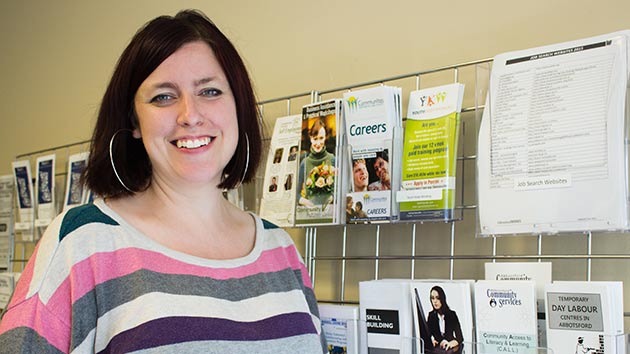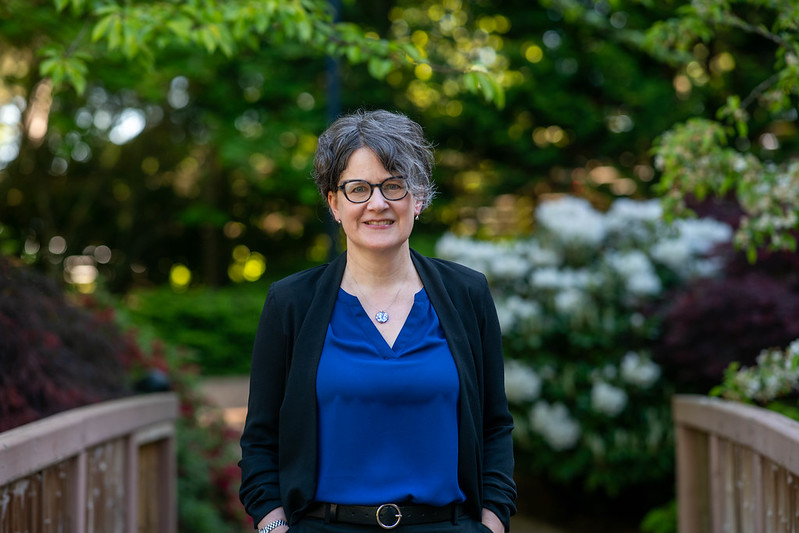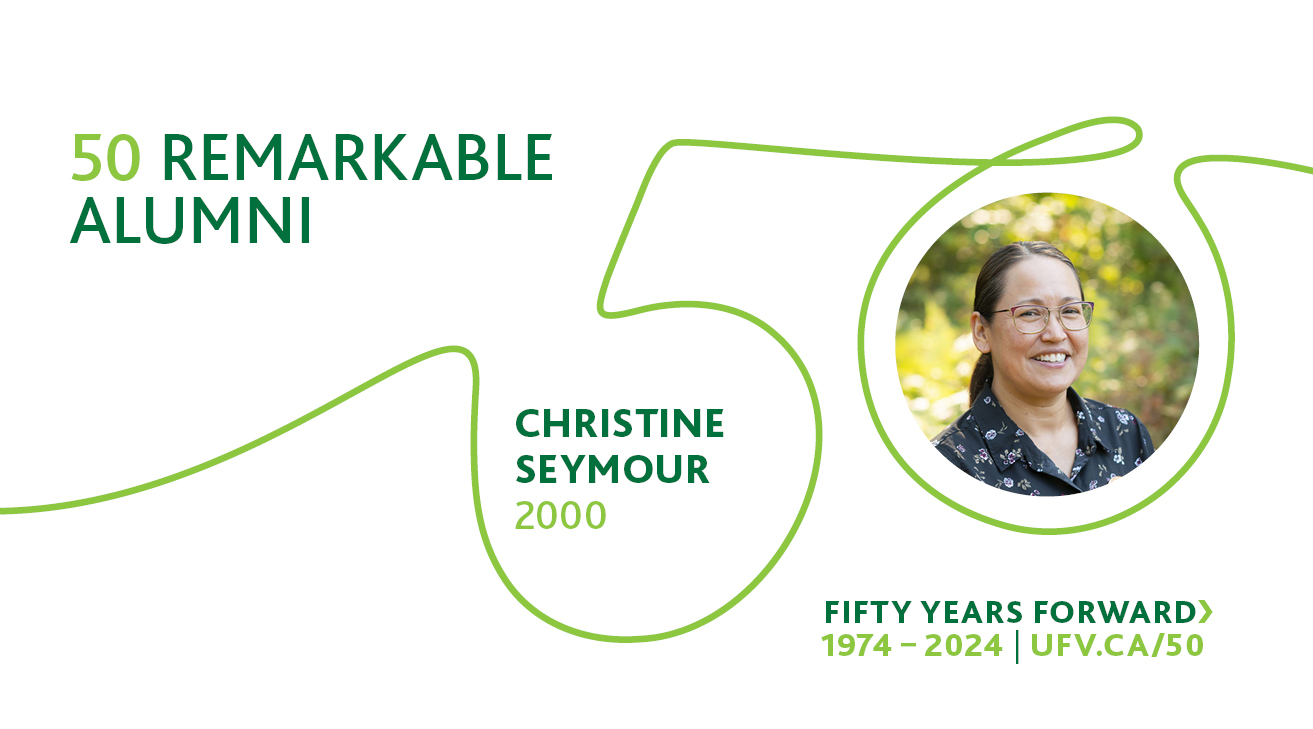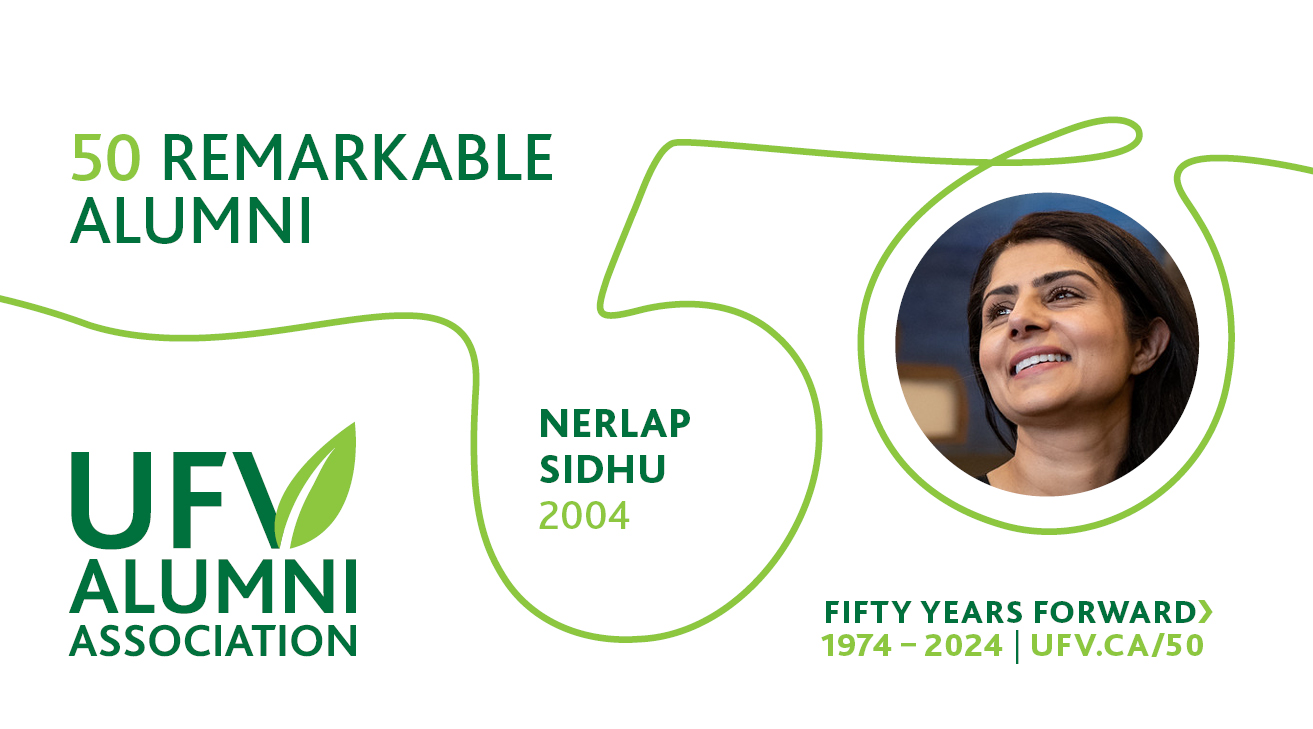Continuing Education’s custom contract training adds value to employment programs
Since the 2008 economic meltdown, entry-level jobs are hard to find in Canada. With a youth unemployment rate above 13% — and aboriginal job seekers, aged 15 and older faring even worse according to the National Aboriginal Economic Development Board — both federal and provincial governments have invested in targeted training initiatives for youth and Aboriginal job seekers.
Facilitated by organizations with strong connections in the community, these initiatives offer a spectrum of programs geared towards removing barriers to employment, building up job skills, and providing work experience.
Over the years, UFV Continuing Education has provided these local organizations with contract training that fits the needs of their clientele. “We offer a wide range of training in a variety of fields,” says Liana Thompson, Director of UFV Continuing Education. “We can provide certification courses such as Occupational First Aid, Food Safe, Cashier Training, World Host, Workplace Hazardous Material Information System (WHMIS), and more. And we offer flexible delivery options during the day, evenings, or weekends at our clients’ place of business or one of our campuses in Abbotsford, Chilliwack, Mission, or Hope.”
Creating a Path to Employment for Youth
Since the mid-nineties, Agora Employment Essentials Inc., a Fraser Valley agency that runs employment initiatives, has contracted UFV Continuing Education to deliver certification training for its programs. “Finding a cost-effective local educational provider was key,” says Cherie Lynn Wagar, Agora’s Program Facilitator. “And we liked the idea of partnering with UCFV, as UFV was then known.”
Currently, Cherie Lynn relies on UFV Continuing Education to deliver Occupational First Aid for the Youth Keep Working (YKW) program, which runs six times a year in Abbotsford. Funded through the Government of Canada, YKW is a 12-week paid training program, that prepares unemployed youth, aged 16 to 30, for the workplace. The program blends workshops that build employability and leadership skills with work placements.
“For the first four weeks, we take participants through a series of skills workshops,” says Cherie Lynn. “We teach them about communication skills, conflict resolution, team building, and boundaries. We also coach them on how to conduct a job search, write a résumé, and present themselves in an interview.”
Achieving First Aid certification is part of the training participants receive to improve their work prospects. “Our clients are competing for entry-level jobs,” says Cherie Lynn. “Having First Aid certification gives them a leg up over job seekers who do not have this training. And achieving certification also boosts their confidence. It’s empowering to learn how to save a life in an emergency.”
After they complete skills training, participants undertake a paid work placement. “We encourage them to apply to places where they would like to work,” Cherie Lynn points out. “They are in charge of their own job search. We may give them some leads, but they are more likely to succeed if they take ownership.”
Agora is connected to a network of local employers who host participants for their eight-week placement. The program covers participants’ wages. Mandatory cost to employers is only $2.28 per hour. “We encourage employers to see these placements as employment training, rather than work experience,” says Cherie-Lynn. “It’s a key difference. For eight weeks, at a very low cost, they have the opportunity to invest in training someone who could become a permanent hire.”
The YKW program has an excellent success rate. Seventy percent of the youth find a job at the end of the training. An additional five to ten percent go back to school to finish high school, start a trade, or gain a certificate, diploma, or degree.
“Many of them enrol at UFV,” says Cherie Lynn. “The UFV Upgrading and Preparation department allows them to complete Grade 12 while also taking university-level credits. This is a really nice transition, especially for older youth who are eager to get going with their education.”
Contract training that Works
In the end, it is UFV’s flexibility in working with her and her clients that impresses Cherie Lynn the most. Recently, when she was launching Catch 22 Solutions, a pilot youth program similar to YKW in Chilliwack, she could not find a location to deliver First Aid training. “Our UFV program coordinator proved very accommodating,” she says. “She suggested possible locations and she worked around our schedule to book the course.” UFV going the extra mile helped relieve the pressure of working out the logistics.
“Over the years, UFV has proven to be a valuable partner,” Cherie Lynn concludes. “I would definitely recommend their contract training services to another organization or company who needs contract training provider.”
Agora Employment Essentials Inc.
Agora first started as the Employment & Community Development department of the Mennonite Central Committee BC (MCC BC) in 1990 and transitioned to Agora, a company owned by MCC BC, in 2012.
In partnership with the federal and provincial governments, community-based organizations, and local employers, Agora has run more than 60 employment and community development projects in Vancouver, Richmond, Abbotsford, and Chilliwack. The agency offers training and employment services to anyone eligible to work in Canada, including youth facing barriers to employment.
WEBSITE:
agoraemployment.ca
Increasing Aboriginal Participation in the Labour Market
For the last three years, UFV Continuing Education has provided contract training services to Stó:Lō Aboriginal Skills & Employment Training (SASET), an organization dedicated to helping First Nations and Inuit people in the Fraser Valley achieve sustainable employment.
“Initially, our clients meet with an employment counsellor, and if vocational training is their goal, they complete a vocational training application,” says Norma Friesen, SASET’s Vocational and Trades Administrator. “Based on this and an in-depth interview, we work with the client to set employment goals and determine what training and funding are available.”
Funding may help cover tuition, books, living expenses, and transportation. Any skills training through a private or public institution is eligible, as long as it is recognized as an industry standard. SASET also runs in-house training programs in construction, office administration, and culinary arts.
Preparing chefs for the rigours of the workplace
Most recently, UFV Continuing Education has delivered World Host training for SASET’s 16-week Pre-Trades Culinary program, which runs three times a year, and enrols up to 15 students per class.
“World Host teaches students about welcoming guests, providing professional service, problem solving, and crisis mitigation,” says Chris Monkman, SASET’s Chef Instructor. “The principles apply not only to food service, but to all hospitality and tourism businesses.”
The training also highlights a value that is essential to success in the workplace. “A positive attitude is as important as skills in this business,” says Chris. “We want guests to feel valued, recommend our restaurant, and come back to visit. Our World Host instructor gets it and she communicates clearly why it matters.”
Overall, the Pre-Trades Culinary program provides trainees with the foundational cooking and safety skills needed for entry-level employment in a professional kitchen, as well as work experience through a three-week practicum. “Our grads have an 80 percent employment rate,” Chris notes. “The main goal is to prepare them to get a job and earn a wage so that they can build a successful future.
Some will go on to pursue an apprenticeship at UFV or elsewhere.” Chris points out that becoming a chef is not for everyone. “It’s not like the cooking shows you see on TV,” he says. “To succeed in a real kitchen, you have to multi-task, be organized, and perform well under pressure. If you get through two years in this career, you can survive anything in life.”
Trades Discovery for Youth
For the last three years, SASET has also partnered with UFV Trades to run a six-week Trades discovery summer program for Aboriginal high school students at the Trades and Technology Centre in Chilliwack. The youth are introduced to welding, construction, culinary, and automotive trades and also earn pre-employment certifications in Forklift, Food Safe, and First Aid.
“They treat it like a real job and students have many chances to develop positive workplace behaviours,” says Chris. “This is a valuable learning experience that gives participants an opportunity to find out if a career in trades is a good fit.”
Ultimately, the goal is to establish a foundation of success that students can build on. “Each person faces a unique set of challenges,” says Carol Raspberry, SASET’s Program Officer Lead. “We set the wheel in motion to help build decision-making skills, confidence, and accountability. When someone moves from being a passive bystander to an active participant, we know positive changes will continue to happen.”
Stó:Lō Aboriginal Skills & Employment Training (SASET)
In partnership with Services Canada, SASET provides employment and skills training services to all First Nations and Inuit people residing in the Fraser Valley to help them reach their full educational and employment potential.
SASET provides services in 23 offices from Surrey to Boston Bar, as well as three communities in Lower Stl’atl’imx. SASET serves all First Nations and Inuit people regardless of whether they reside on reserve or off-reserve or in an urban community, and regardless of their place of origin and status under the Indian Act.
WEBSITE:
saset.ca







